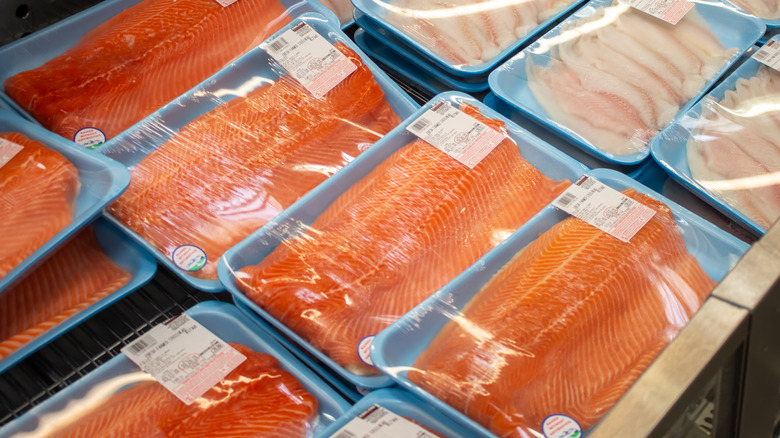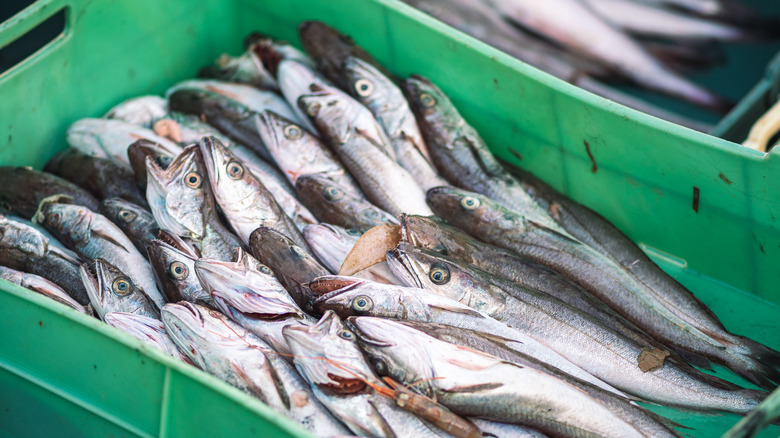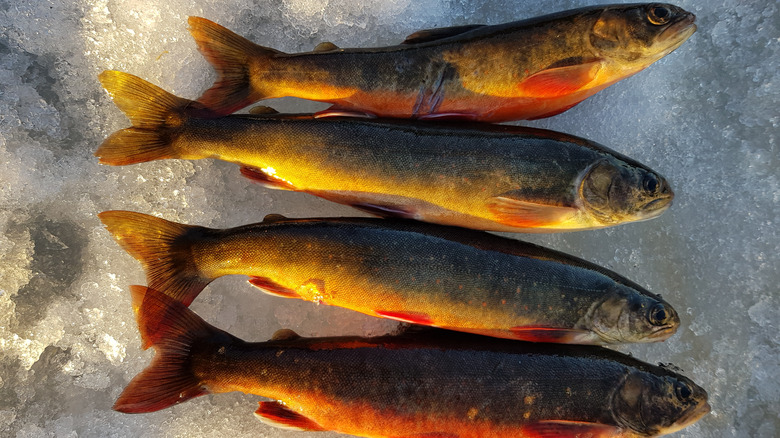The Endangered Fish That Costco Refuses To Sell
Former meat eaters who have gone vegan in the last few years might cite sustainability as an incentive for making the switch to a plant-based diet. While studies on the environmental impact of large-scale red meat production have been floating around for quite a while, it wasn't until recently that they started reaching a mass audience. A 2021 Faunalytics study, which surveyed the motivations behind newly minted vegans, showed that 42% of participants made the switch for health reasons, 20% were fueled by animal protection, and 18% were concerned about the environment.
They had good reason to be. Animal agriculture destroys 10,000 acres of the Amazon rainforest each day, from Brazil to Peru to French Guyana. What's more, every 3.5 ounces of beef accounts for a global average of more than a thousand pounds of greenhouse gases, as cows produce more methane than other animals.
But beef isn't the only high-in-demand protein that takes a toll on climate health. The fishing industry is also at the center of a sustainability controversy. Shrimp farming is perhaps the most abhorrent example of unsustainable and unethical production — not only for the ocean, but also for the migrant workers who are exploited for profit in Thailand, which exported 158.3 thousand tons of shrimp in 2021. Another huge issue? Overfishing. All over the world, nearly-extinct swimmers are still being caught and sold. As part of its sustainability efforts, Costco has long banned its stores from selling certain endangered fish.
Atlantic cod and halibut are off-limits
By all accounts, Costco was ahead of the game on the sustainable fish market. Back in 2011, the wholesale retailer removed Atlantic cod, Atlantic halibut, Chilean sea bass, Greenland halibut, grouper, monkfish, orange roughy, redfish, shark, skates, rays, swordfish, and bluefin tuna from its shelves. That same year, Costco also announced that it would only buy tilapia from suppliers certified under the Tilapia Aquaculture Dialogue.
Each of those species was — and still is — facing the threat of extinction due to overfishing. Ever since, every seafood item at the chain has required approval form the Marine Stewardship Council, which vets fisheries for environmentally sound practices.
In place of those no-go fish, Costco sells options like Sockeye salmon, which the Monterey Bay Aquarium Seafood Watch lists as a "certified buy." It's worth noting, however, that Sockeye are often wild-caught using Gillnets, which have been known to cause harm to sea turtles. That said, Sockeye are still more sustainable than many other types of fish. Ultimately, the most sustainable salmon is the most populated salmon. As of this writing, pink salmon (also known as Humpback salmon) wins that particular gold medal.
More sustainable choices
If you do all your fish shopping at Costco, you can rest assured that the seafood you come home with steered clear of wildly nefarious farming practices. But if you find yourself at an unfamiliar seafood market or grocery store and you don't know what to buy, it's worth keeping a mental log of some eco-friendly options. And if you can never decide whether you're in the mood for salmon or trout, you might try Arctic Char. Sustainability wise, you're good to go if the fish bears a label that indicates it was farmed in the U.S., Canada, in Icelandic raceways, or wild-caught in Canada's Cambridge Bay.
More into bass? As we know from Costco's 2011 ban, Chilean sea bass is not the most environmentally friendly choice. U.S.-farmed sunshine bass, on the other hand, is a solid backup. As a bonus, some say the species, which is a hybrid of a female white bass and male striped bass, lacks the muddy undertone of a Florida largemouth bass, sunshine's naturally occurring cousin.
What about bivalves, you ask? Most varieties of clams are environmentalist-approved, but to err on the safe side, look for wild clams harvested by hand from the U.S. and Canada. Oysters are also a good pick, unless they're caught in New York, whose harbors have a history of over-harvesting.


